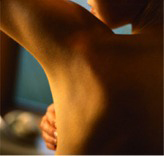
The research on computer aided detection – CAD – backed by Cancer Research UK, found some areas in which it might be better than an entirely human process.
Researchers from Aberdeen University, Scotland, and Manchester University, England, tested the detection system on more than 10,000 scans taken in 1996. These were originally read by two radiologists but for the study they were read by a single radiologist with the help of the computer.
Researcher Professor Fiona Gilbert, of Aberdeen University said: “The results of this trial are very encouraging. The mammograms studied were from a sample taken in 1996 so that all cancers that
developed subsequently in this group of women could be included.”
The computer programme prompted the radiologist for areas of the scans to check for abnormalities.
The second stage of the research will see the system offered to some 30,000 women – whose mammogram results will be checked by the CAD.
Researcher Professor Fiona Gilbert, of Aberdeen University said: “The results of this trial are very encouraging. The mammograms studied were from a sample taken in 1996 so that all cancers that
developed subsequently in this group of women could be included.”
Another researcher Professor Stephen Duffy, of Cancer Research UK, said: “The great advantage of CAD is that, if we confirm the very promising results of this study in a prospective trial, it could help manpower problems in the breast screening service.
“In some areas women do not get their screening invitations as regularly as they should (every three years) because there are simply not enough experts to go round. The CAD system would free up hundreds of radiologists to work on more mammograms as only one instead of two would be required to work on each x- ray.”
